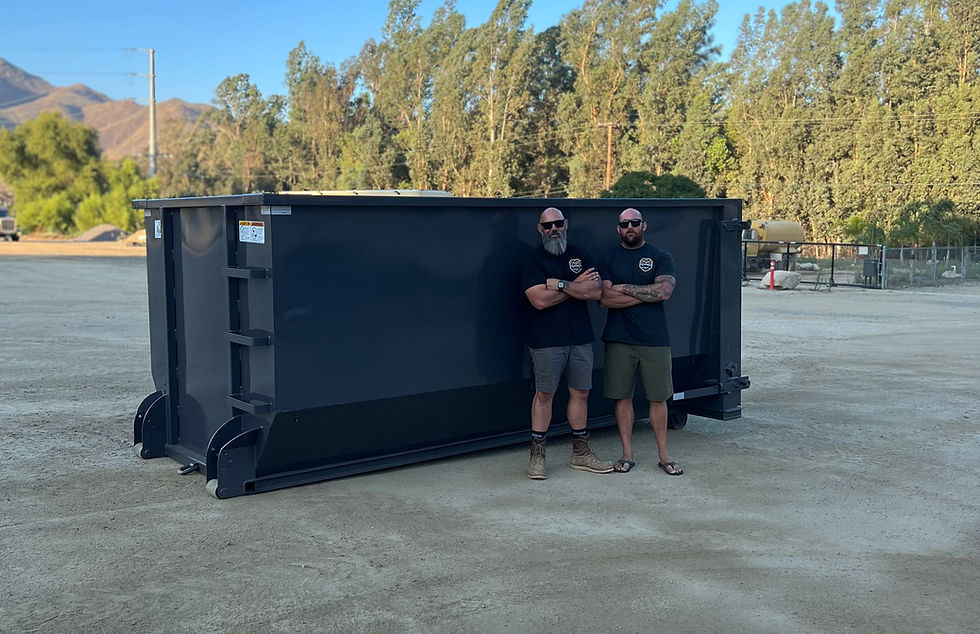The Role of Material Delivery in Construction Efficiency and Project Success

Material delivery is a critical component of construction and renovation projects, directly influencing timelines, budgets, and overall success. Reliable delivery ensures that necessary materials arrive on time, minimizing delays and keeping projects on track. Whether working on a small residential upgrade or a large commercial build, efficient material delivery is key to seamless operations.
This article explores the importance of material delivery, strategies for optimizing logistics, and how it contributes to successful construction projects.
Why Material Delivery is Vital
Material delivery is more than just transportation; it’s an integral part of construction planning and execution.
Ensuring Project Continuity
Delays in material delivery can stall progress, increasing costs and wasting labor hours.
Reliable scheduling ensures that materials are available when needed, maintaining workflow consistency.
Reducing Costs
Consolidating deliveries and optimizing routes save fuel and reduce transportation expenses.
Accurate material estimation prevents overordering or underordering, eliminating waste.
Improving Site Safety
Timely deliveries prevent site overcrowding, reducing the risk of accidents caused by excess materials.
Storing materials properly upon delivery ensures they remain in good condition until use.
Types of Material Delivery Services
Material delivery caters to a wide range of project needs, offering tailored solutions for different construction requirements.
Bulk Deliveries
Ideal for large-scale projects requiring materials like concrete, gravel, or timber.
Specialized vehicles, such as dump trucks or flatbeds, handle heavy loads efficiently.
Specialized Deliveries
Certain projects require unique materials, such as prefabricated components or custom finishes.
Specialized equipment ensures safe handling and transport of delicate or oversized items.
Just-in-Time Deliveries
Materials are delivered shortly before they are needed, reducing storage requirements and site congestion.
This approach is particularly useful for projects with limited space or tight schedules.
Optimizing Material Delivery Logistics
Effective logistics planning is essential for ensuring smooth material delivery and avoiding disruptions.
Accurate Material Estimation
Collaborate with contractors to determine precise quantities and specifications for all materials.
Avoid overstocking or underordering, which can lead to delays or increased costs.
Scheduling and Coordination
Align delivery schedules with project milestones to ensure materials arrive on time.
Communicate clearly with suppliers to confirm availability and expected delivery times.
Efficient Route Planning
Use technology to identify the fastest and safest delivery routes, minimizing transit time and fuel consumption.
Consider factors like road conditions, traffic patterns, and weather when planning routes.
Environmental Benefits of Efficient Material Delivery
Sustainable delivery practices contribute to environmental conservation and align with modern construction goals.
Reduced Carbon Emissions
Consolidating deliveries reduces the number of trips, lowering fuel consumption and emissions.
Using eco-friendly vehicles, such as electric or hybrid trucks, further minimizes environmental impact.
Waste Reduction
Precise material estimation ensures only what’s needed is delivered, reducing excess waste.
Recycling leftover materials or packaging supports sustainability efforts.
Support for Green Construction
Reliable delivery enables the use of sustainable materials, such as recycled aggregates or eco-friendly finishes.
Challenges in Material Delivery
Despite its importance, material delivery can present challenges that require proactive solutions.
Unpredictable Delays
Weather conditions, traffic congestion, or supply chain disruptions can impact delivery schedules.
Mitigation: Build buffer time into project schedules and maintain open communication with suppliers.
Damage During Transit
Improper handling or inadequate packaging can result in damaged materials.
Mitigation: Partner with providers experienced in handling specific materials, and inspect deliveries upon arrival.
Coordination Issues
Poor communication between contractors, suppliers, and drivers can lead to missed or misplaced deliveries.
Mitigation: Use project management tools to streamline coordination and track deliveries in real time.
The Role of Professional Providers
Partnering with experienced material delivery services ensures reliability, efficiency, and peace of mind.
Expertise and Resources
Professional providers have the equipment and knowledge to handle diverse materials and project requirements.
Services like those offered by Monarch Dumpster Rental ensure timely and accurate deliveries.
Scalability
Providers accommodate projects of all sizes, from small renovations to large construction sites.
Flexibility
Customized delivery schedules and options, such as just-in-time or bulk deliveries, meet specific project needs.
Strategies for Successful Material Delivery
Implementing best practices in material delivery ensures projects run smoothly and efficiently.
Choose the Right Partner
Research providers with a proven track record of reliability, quality, and customer service.
Confirm that the provider has experience handling materials relevant to your project.
Leverage Technology
Use digital platforms to monitor delivery status, track shipments, and receive updates in real time.
Implement inventory management systems to maintain accurate records of materials on-site.
Plan for the Unexpected
Have contingency plans in place for delays, shortages, or damaged goods.
Maintain relationships with multiple suppliers to ensure backup options.
Material Delivery in Specialized Projects
Certain projects demand tailored delivery solutions to meet unique challenges.
Urban Construction
Delivering materials to densely populated areas requires careful planning to navigate narrow streets and limited storage space.
Nighttime deliveries or compact vehicles may be necessary to reduce disruptions.
Remote Locations
Projects in remote or hard-to-reach areas require logistics expertise to ensure materials arrive intact.
Consider factors like weather conditions and terrain when planning deliveries.
High-Volume Projects
Large-scale developments require frequent and coordinated deliveries to keep up with project demands.
Bulk deliveries and efficient scheduling minimize downtime and ensure progress.
The Long-Term Impact of Reliable Material Delivery
Efficient material delivery positively impacts projects during and beyond construction.
Faster Completion Times
Timely deliveries keep projects on schedule, reducing labor costs and delays.
Improved Budget Management
Accurate material estimation and efficient logistics prevent unexpected expenses.
Enhanced Client Satisfaction
Projects completed on time and within budget strengthen relationships with clients and stakeholders.
Conclusion
Material delivery is a cornerstone of construction efficiency, ensuring projects stay on schedule and meet quality standards. From minimizing delays to supporting sustainability, reliable delivery services enhance every aspect of project management.
For construction teams seeking dependable solutions, Monarch Dumpster Rental offers professional material delivery services tailored to meet diverse project needs. By prioritizing efficient logistics and communication, you can ensure the success of your construction or renovation project from start to finish.
